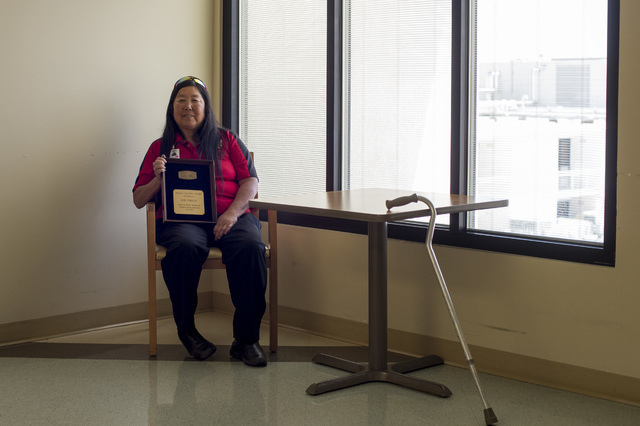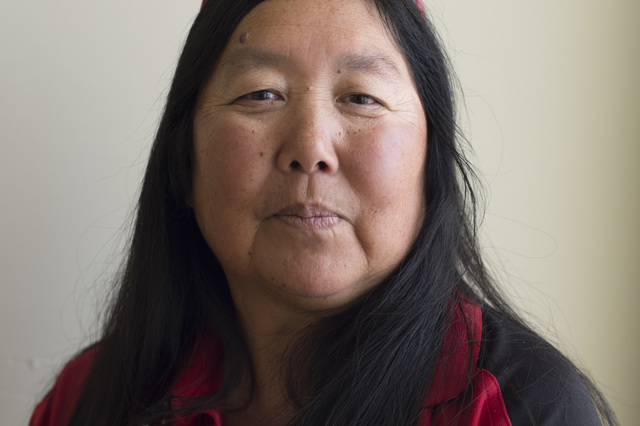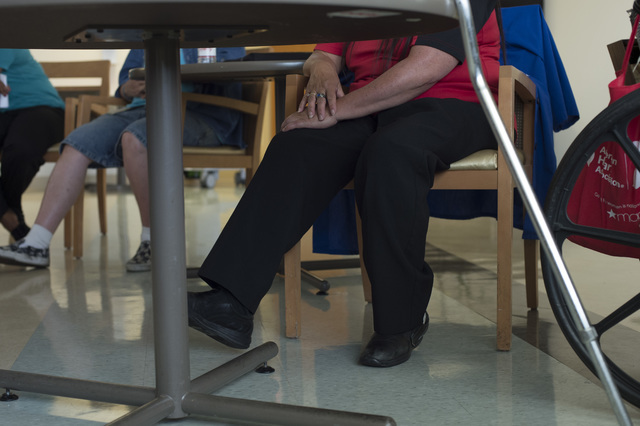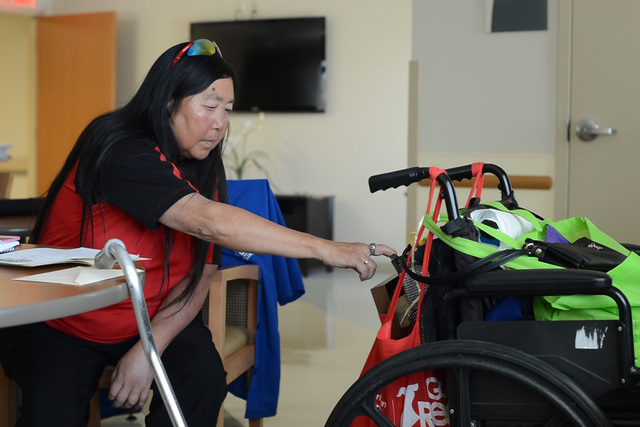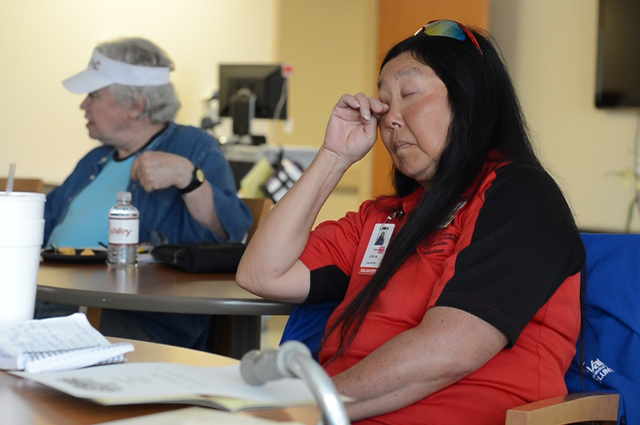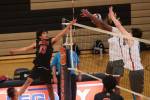Stroke at 44 inspired Las Vegas woman to mentor other survivors
Dec. 30, 1999, seemed like any ordinary day to Lori Wright. She walked to work, got home, made dinner and went to bed.
Around midnight, she woke up to use the restroom. Only Wright never made it back to her bed — she had a stroke.
Her husband, Steve, rushed her to the hospital and didn’t let her know what happened until they got there.
“He knew I had a stroke because the whole left side of my face looked like it was melting off my skull,” Wright said.
The left side of her body became paralyzed. She lost movement in her arm and leg, and for a while, she had no number skills.
She was only 44 at the time, an avid sports player who exercised regularly and took care of herself. Wright said she remained in denial when the doctor gave her his diagnosis.
It’s the same reaction she sees in some of the stroke patients she reaches out to on a weekly basis.
Today, Wright, an east valley resident, serves as a stroke sharegiver with the American Stroke Association, acting as a mentor and resource for others who have recently experienced a stroke. She visits Valley Hospital Medical Center, 620 Shadow Lane; Desert Springs Hospital Medical Center, 2075 E. Flamingo Road, and St. Rose Dominican Hospital — Siena Campus, 3001 St. Rose Parkway in Henderson.
When she visits stroke patients, Wright gives them informational packets and resources to connect to and also attends stroke survivor meetings with them.
Most important to Naomi Wilson, neuro-cardio coordinator at Valley Hospital, is that through Wright’s work, the patients can see that there is life after a stroke.
“It just gives them a visual when they see someone that has had major deficits is volunteering her time and offering support,” Wilson said. “It’s a gift.”
Stroke patient Howard Nathan was admitted into Valley Hospital in early July, and Wright came to visit him while he was in the intensive care unit. Nathan said Wright’s presence gave him encouragement.
Although talking about his stroke is still hard for him, he hopes that after he recovers, he can also volunteer with her.
Not all patients are ready to hear Wright’s message, however, and she understands that. Wright said there are days when she gets frustrated with her slow walking pace. She also wishes that she could use her left arm and leg again so that she could hold her grandchildren and play with them.
“Sometimes, that kind of stuff gets a little depressing … but that’s going to happen because it’s a whole new lifestyle,” Wright said. “I am not the same person I was 16 years ago because I can’t run anymore, I can’t play ball anymore, but I’ve met a lot of people with disabilities, and I understand them more.”
After her stroke, the doctor told Wright that she would never be able to walk again, but she remained defiant and doesn’t let her disability slow down her social life. The 60-year-old loves music, and on any given week, you can find her at the South Point or the Fiesta Rancho listening to Motown until the early morning or cheering on her friends in the LGBTQ bowling league at the Gold Coast.
Although she still has trouble balancing herself, Wright likes to remain as independent as possible and uses public transportation to get around town. She said she met some of her closest friends while riding the bus.
Earlier this summer, Wright won the Stroke Champion Award from the American Heart Association/American Stroke Association, Western States Affiliate, for her 10 years of volunteer work not only inside hospitals with patients but also spreading knowledge to the Las Vegas community during health fairs.
Wright teaches people how to spot stroke warning signs and also how to prevent them, but her most important message is for people who experience or witness a loved one having a stroke. She said to always call for an ambulance instead of driving someone to the hospital because every second can be crucial.
Medical advances have found ways to reverse some of the damage done to the brain by stroke but only if treated early. Wright wishes she and her husband had known that 16 years ago.
“There’s no telling if I still would have been paralyzed if I would have gone by ambulance,” she said. “There’s a chance there could have been less deficits, but it’s all in hindsight.”
Despite the difficulties in her life, Wright said she has learned to cope with the challenges because she has too much left to live for.
She said her next challenge is to learn to bowl by herself. Her husband doesn’t think her body is up for it, but Wright said she thinks if she is determined enough, she might be able to do it.
To contact the American Stroke Association, call 888-478-7653 or visit strokeassociation.org.



